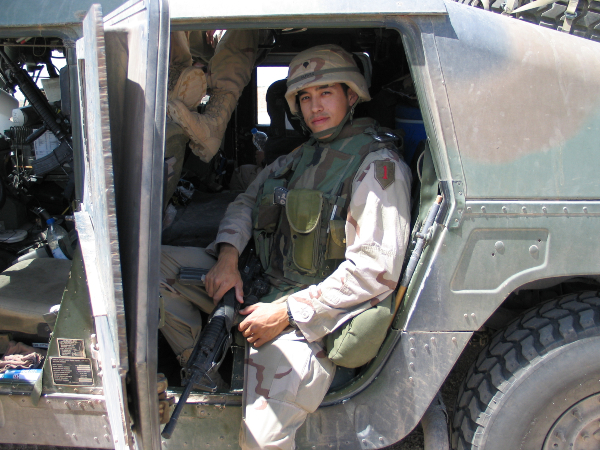Veteran Finds ‘Army’ of Helpers in Warrior Care Network

Amid thoughts of killing himself multiple times a day, Sergio Alfaro did what he could just to stay alive. He could barely get through the day without feeling like a zombie and felt his relationship with his wife was at risk.
The Army and Air Force National Guard veteran served his country from 2000 to 2005 and found himself facing PTSD and depression after leaving the military.
“I did not understand the full depth of the mental wounding that I suffered until I had to leave the career that I thought I was made for,” said Sergio, who served as a medic. “I love being able to talk with patients and have them open up their lives to me and trust me — and being able to get them to a better place, to heal them.”
Through seeking counseling with his wife, he discovered Warrior Care Network®. This Wounded Warrior Project® (WWP) program connects wounded veterans and their families with world-class mental health care through four partner academic medical centers. Sergio participated in Home Base, a Red Sox Foundation and Massachusetts General Hospital Program. When he moved to Chicago, he continued treatment at the Road Home Program at Rush University Medical Center.
“At first, we were just going to do couples therapy,” Sergio said. “But then I tried individual therapy. The therapist challenged me, promoted ideas on routes of therapy, and was there for my family and me. Not only that, but my therapist also led some of the different therapy groups I attended, joined couples therapy when requested, was a phone call away at my worst moments, and gave casual smiles and hellos whenever we crossed paths at the clinic.
“As I became more integrated into the system, I saw all the different therapies I was doing there were complementary,” Sergio added.
Through two- to three-week intensive outpatient programs, Warrior Care Network provides care tailored to each veteran and family member. The programs integrate behavioral health care, rehabilitative medicine, wellness, nutrition, mindfulness training, and family support.
“Warrior Care Network gives warriors a fresh perspective for their healing process,” said Dr. Louis Chow, Home Base psychologist and senior director of Home Base Training Institute and Network Development. “We work as an integrated team to not only provide care and support during their time with us, but also empower veterans and their family members to use their newfound skills to continue their treatment and engage fully in their lives back home.”
“Warrior Care Network helped my family and I find a productive path to our independence from mental illness,” Sergio said. “Not only did I get treatment, but my family was also treated and educated on my condition. My family and I were cared for by a pair of psychologists for my wife and myself, for individual and psychoeducational therapy; a psychiatrist, for medications; a social worker; therapy group leaders; and veteran outreach coordinators.
“The program provided an army of people who were supporting me in this transition from military to civilian life. I knew I couldn't do this on my own, and to see all those who believed in my recovery helped me to push forward despite the struggle.”
October is National Depression and Mental Health Screening Month. WWP offers mental health services for veterans and families coping with the invisible wounds of war. Get connected today or read more about how WWP helps.
About Wounded Warrior Project
Since 2003, Wounded Warrior Project® (WWP) has been meeting the growing needs of warriors, their families, and caregivers — helping them achieve their highest ambition. Learn more.